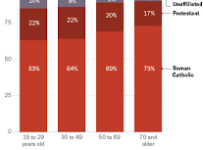Introduction:

Brazil, a vibrant tapestry of culture, economy, and opportunity, stands as one of the foremost economies in Latin America. Within its bustling markets and diverse communities, the insurance industry plays a pivotal role in providing financial security and stability. But amidst this bustling landscape, one question often arises: How many insurance companies are there in Brazil? Let’s embark on a comprehensive journey to uncover the intricacies of Brazil’s insurance sector, exploring its players, challenges, and promises.
Understanding Brazil’s Insurance Landscape:

To grasp the scope of Brazil’s insurance industry, it’s essential to delve into its historical evolution and regulatory framework. Over the decades, Brazil has witnessed a burgeoning insurance sector, driven by factors such as economic growth, urbanization, and changing consumer preferences. From traditional insurance products like life and property insurance to specialized offerings in health and automotive sectors, the market caters to a wide array of needs.
The Regulatory Environment:

Central to the functioning of Brazil’s insurance sector is its regulatory framework, overseen by regulatory bodies such as the Superintendence of Private Insurance (SUSEP). These entities ensure compliance with laws, promote market stability, and safeguard consumer interests. Through licensing and oversight, they maintain a balance between innovation and risk mitigation within the industry.
The Players: Domestic and Foreign:
At the heart of Brazil’s insurance sector are its myriad players, comprising both domestic and foreign entities. From longstanding insurers deeply rooted in the Brazilian market to multinational corporations expanding their footprint, the industry boasts a diverse ecosystem. Notable names like Bradesco Seguros, Porto Seguro, and SulAmérica stand as pillars of the domestic market, while international giants like Allianz and Zurich bring global expertise and resources to the table.
Market Dynamics and Competition:
Competition is the lifeblood of Brazil’s insurance industry, driving innovation, efficiency, and customer-centricity. Companies vie for market share through a myriad of strategies, including product diversification, pricing tactics, and service excellence. This fierce competition benefits consumers by offering a wide range of choices and driving down premiums through market forces.
Challenges on the Horizon:
Despite its resilience and growth, Brazil’s insurance industry faces a host of challenges that warrant attention. Economic volatility, regulatory complexities, and evolving consumer behaviors pose significant hurdles for insurers. Moreover, emerging risks such as cyber threats, climate change, and pandemics add layers of uncertainty, requiring adaptive strategies and risk management frameworks.
Technology and Innovation:
In the face of challenges, technology emerges as a potent enabler for transformation within Brazil’s insurance landscape. From digital platforms facilitating policy issuance and claims processing to data analytics driving underwriting decisions, technology is reshaping the industry’s operations and customer interactions. Insurtech startups are also making waves, offering innovative solutions in areas like peer-to-peer insurance, microinsurance, and parametric products.
The Impact of COVID-19:
The COVID-19 pandemic cast a spotlight on the pivotal role of insurance in times of crisis. As individuals and businesses grappled with unprecedented challenges, insurers played a vital role in providing financial protection and support. From business interruption claims to health coverage for medical expenses, insurance companies stepped up to mitigate the pandemic’s impact on their policyholders.
Future Prospects and Opportunities:
Looking ahead, the future of Brazil’s insurance industry is marked by both challenges and opportunities. As the economy rebounds and technology continues to evolve, insurers must navigate a rapidly changing landscape while staying true to their core principles of risk management and customer-centricity. Collaboration, innovation, and resilience will be key as the industry charts its course in a post-pandemic world.
Conclusion:
In conclusion, the question of how many insurance companies are there in Brazil is not merely a matter of numbers but a testament to the vibrancy and dynamism of the country’s insurance sector. With a diverse array of players, a robust regulatory framework, and a growing emphasis on innovation, Brazil’s insurance industry stands poised for continued growth and evolution. As it navigates the challenges and opportunities on the horizon, one thing remains certain: the enduring importance of insurance in safeguarding the financial well-being of individuals and businesses across Brazil.


